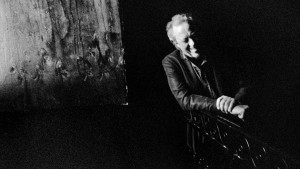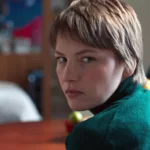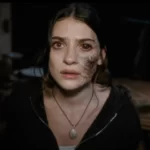The legendary Boz Scaggs has hit something of a purple patch in recent years. He has just released a fine new album, A Fool To Care, which he recorded with producer Steve Jordan in Nashville. This follows the success of its equally fine predecessor, Memphis (2013). The heart of new material on A Fool To Care lies in the sounds of Texas, Louisiana and Oklahoma that played such a vital role in shaping Scaggs’ musical sensibility, but they venture forth boldly from there, ranging from the seductive New Orleans rumble of the title track to the wry social commentary of “Hell to Pay” and a heartbreakingly wistful interpretation of The Band’s “Whispering Pines.” Sean Sennett caught up with Boz Scaggs to discuss the album.
TOM: I really enjoyed the Memphis record, a lot. It’s great to A Fool To Care where you’ve gone back into the studio but changed the backdrop, Nashville this time. Was that Steve Jordan’s idea or your idea to go there?
Boz: That’s right. We moved down the road in Tennessee to Nashville. The Memphis album: the reason we went to Memphis was to get the sound of a particular studio, Royal Studio. It has a very signature sound. One of the things we wanted to try to achieve in this follow-up album was a broader sound spectrum. Memphis is what it is. Royal Studio is what it is. There’s not a lot of other equipment or other sounds available. We wanted to expand.
We were looking at a studio in California, in New York, and we were thinking about Nashville. Nashville really had something more to offer us in terms of it’s a comfortable city to be in. The studio we worked in is called Blackbird. It’s one of the best-equipped studios in the world. I’d say it’s one of three in the world that have a particular level of equipment and facilities.
It had it all going for it. The other plus in Nashville for us at the time was some musicians we had wanted to work with that live in Nashville and the availability of other great players, specialist players. Nashville really won, hands down as far as I was concerned.
Reggie Young is on this record, too, isn’t he?
Yeah, that’s really interesting you should mention that. Not a lot of people know who Reggie Young is. In my book, and Steve Jordan’s book, Reggie is one of the greatest guitar players of our era for the kind of music that we like. The other one from Nashville would be Paul Franklin. I don’t know if you’re familiar with him, but Paul Franklin is arguably the greatest steel player alive, and he does a lot of work, as you would imagine, in Nashville. I don’t know how much he travels, but he’s a great treasure. That’s another name you might keep in mind in the same department as Reggie Young.
When you were playing with Reggie, did that inspire you to play more guitar on the record or less?
I’m not really in that position. I don’t feel like I’m in that position. Ray Parker, Jr. is one of the four mainstays of our band. Then the other people we bring in like Paul Franklin or Reggie or a number of others are brought in for a specific purpose. There’s a sound and the way they fit into the section. There’s no question with me; if I feel like playing I’ll play. There’s some songs I have to play in order to get the feel I’m looking for.
When you’ve got Reggie and Ray, they’re covering the main body of the harmonies and rhythm we’re looking for. I certainly don’t feel compelled to play. But the way I do fit in is afterwards. We do these recordings in the studio, which we call rhythm tracks, and then I take them back to my home studio. Then I’ll add, if it’s a guitar part or guitar fills, then I add my part.
I wanted to ask you about “Hell to Pay.” When did you write that song?
It’s been sitting around for 25 years or something. I make from time to time very crude demos, just a little groove with a guitar, drum machine, and bass maybe. It’s just something I do in my spare time.
I’d had that little piece of music on this recorder for some time. I was reviewing some, looking for ideas one day, and I came across that one. I just decided to do a little work on it. I tried putting a little vocal into it, and then I started writing some words. I had some ideas for it. I had it handy, let’s say.
As we were making this record, I was looking for a song for a duet. I was thinking of Bonnie (Raitt) and just what kind of a song might we get together on. Something made me think this might be a good one for me to finish and pitch to her. That’s how it came about.
And Lucinda Williams, you’re obviously a fan of hers for a while.
Yeah, I’m an enormous fan. I think she’s one of the great artists of my time. She just stuns me with her writing and production, and of course, her voice. We got together on a duet on a special show a few years ago, and it worked well. We sort of made a pact to try to get together sometime on a duet recording. This (‘Whispering Pines’) was the occasion. It just worked out.
Did you work with Steve Jordan bringing the non original tunes together, or were people suggesting those tunes to you? How did that work?
I definitely worked with Steve. We really are on a path to explore music that we have in common. We both really are very much influenced by the music that came out of New Orleans, the jazz, rhythm and blues, early rock and roll, and of course the blues themselves. Jordan is one of the best players in the world to understand that time. We have a lot in common. Part of the joy of the process with us is pitching songs to each other and making suggestions.
We start with a rather long list. It could be 35 or 40 songs that gets boiled down to 14 or 15 or 16 songs that we go into the studio with. We bounce them back and forth between each other. In the meantime, I do some demos in my home studio, and show them to him, and he and I kick around the arrangements. It’s very much a collaborative effort. I have ideas. He has ideas. I do get suggestions from friends. At least three of these songs were suggested by my son, who’s a really fine musician himself.
You did a lot of work before you became famous. Was there ever a time when you thought when is it going to happen, or was the wait all part of creating good work?
I think every recording artist has a feeling during the process that they’re doing something that’s very special and very important. It’s just part of the adrenaline that goes with the process, or the concentration.
After those early records, when you’re young and ambitious and thinking this one’s really going to find my audience and it’s not like the greatest disappointment at all when you don’t get a number-one hit song. Yeah, that would be nice. It’s kind of a dream, and you realise that it’s a long shot. But then as you say, what it’s really about is being a musician.
I think a lot of the dreams and expectations fall to the wayside once you really get into it, and realise this is what you do, and this is what you love to do. The experience is in the touring, and in playing with those musicians, and co-writing. That’s what it’s all about. I’d have to say that there were great expectations that didn’t come to pass early on, but I had a good solid career. I was selling a good number of records, working with a great record company. It was moving along, so that’s really what it was about. When the big one came, that’s indescribable.
When you wrote a track like “What Can I Say” did you feel it in your bones that it was going to connect with a wider audience?
No, you don’t. I think quite the opposite. In the case of the song “Lowdown,” I think all the musicians, my co-writer, the producer and I had a feeling that this was a very special track. But we also had a strong feeling that it would never be a single and it would never be a hit. At the time, it was very different from anything on the radio, anything on regular pop radio. It sounds a lot more accessible now because things move in a certain direction, but at that time, it was unthinkable.
You don’t know. You have favourites and you have things that might be more mainstream, but radio and exposure really take the wrong turn, I think, most of the time.
In terms of this record and where you came with Memphis, it feels like you’ve hit a very productive patch in your life again. Do you feel reconnected to the studio and committed to making new music? Is that a big thing for you at the moment?
It is a big thing for me. I had a really good success with the Memphis album last year. I can’t help but say I felt a particular burst of energy with the audiences that I played for, and the thrill of having new music. That’s why this record came so quickly on its heels. I’ve already got three new projects on the drawing board now. It feels like a particularly good time.




